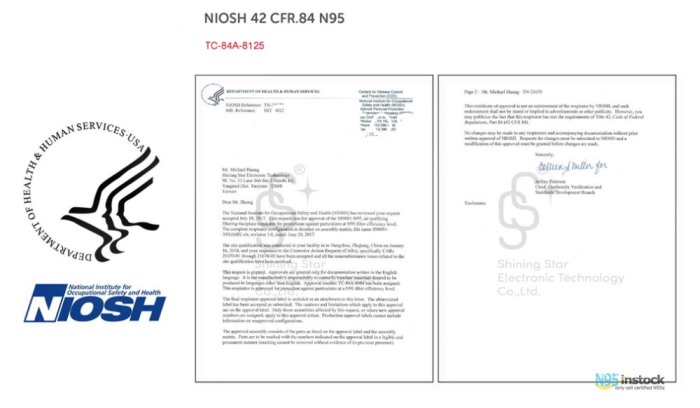The longer and more often you wear your N95 mask, the more it becomes contaminated. If you wear an N95 mask more than a manufacturer’s guidelines recommend (or more than five times, if that mask has no particular guidelines), the mask might no longer actually be all that effective. Because N95 masks have this specific static charge that helps to filter viruses, Marr says that you should not wash the mask, as water would dissipate the charge. N95 masks can filter as much as 95% of particles in the air if they are approved by NIOSH and the right fit is achieved.
Health-care providers should receive training and have passed fit testing prior to using N95 masks. Here’s an example of a health care worker in Oakland, CA who passed the Fit Test…[+] of an N95 Respiratory Mask. In this episode, two AMA members took the time to share what patients should know about wearing N95 or KN95 masks, the types of specialty filtration masks doctors and others in the healthcare field refer to as respirators. Much of the nation’s focus has been on a shortage of breathing machines, such as the N95 N95 masks (the 95 referring to the fact that these masks filter 95 percent of tiny particles in the air), and breathing machine shortages remain a deeply concerning issue.
Surgical masks are not designed to be sealed over the face, and therefore they do not offer wearers as much protection as an N95 respirator. Dust masks are not real respirators, nor do they offer protection from dangerous dust, gases, or vapors. Respirators may help to protect you when breathing in, filtering small or even microscopic particles from the air, while cloth masks and disposable masks are more concerned with protecting others around you from larger droplets of particles when you breathe out, cough, or sneeze. True respirator masks, like N95 respirators, are designed to protect wearers from particles in the air as well as from fluids that pollute their faces.

A critical strategy to protect healthcare workers at the forefront of combating the highly transmissible new coronavirus, SARS-CoV-2, is to employ PPE, including a type of mask known as an N95 respirator, or N95 face shield. N95 respirators, when not properly fitted, provide a number of protective measures, which are in some cases comparable to surgical and cloth masks. N95 respirators offered higher levels of protection compared with other categories of face coverings tested; however, it is notable that the majority of N95 respirators failed to fit participants properly.
The tests showed a cohort of N95 respirators were properly decontaminated and retained structural integrity and function. Two participants were included for (1) evaluation of whether facial hair affected the fit test, and (2) evaluation of whether facial hair affected fit in KN95, surgical, and cloth masks, and in N95 respirators. Because the National Institute of Occupational Safety and Health (NIOSH)-approved N95 masks are no longer available in limited supply, the CDC’s guidelines indicate individuals can opt to use NIOSH-approved N95 masks instead of cloth face masks for individual use.


For more information about N95 or KN95 masks, welcome to visit n95instock (https://n95instock.com/)


I am very grateful for this information.